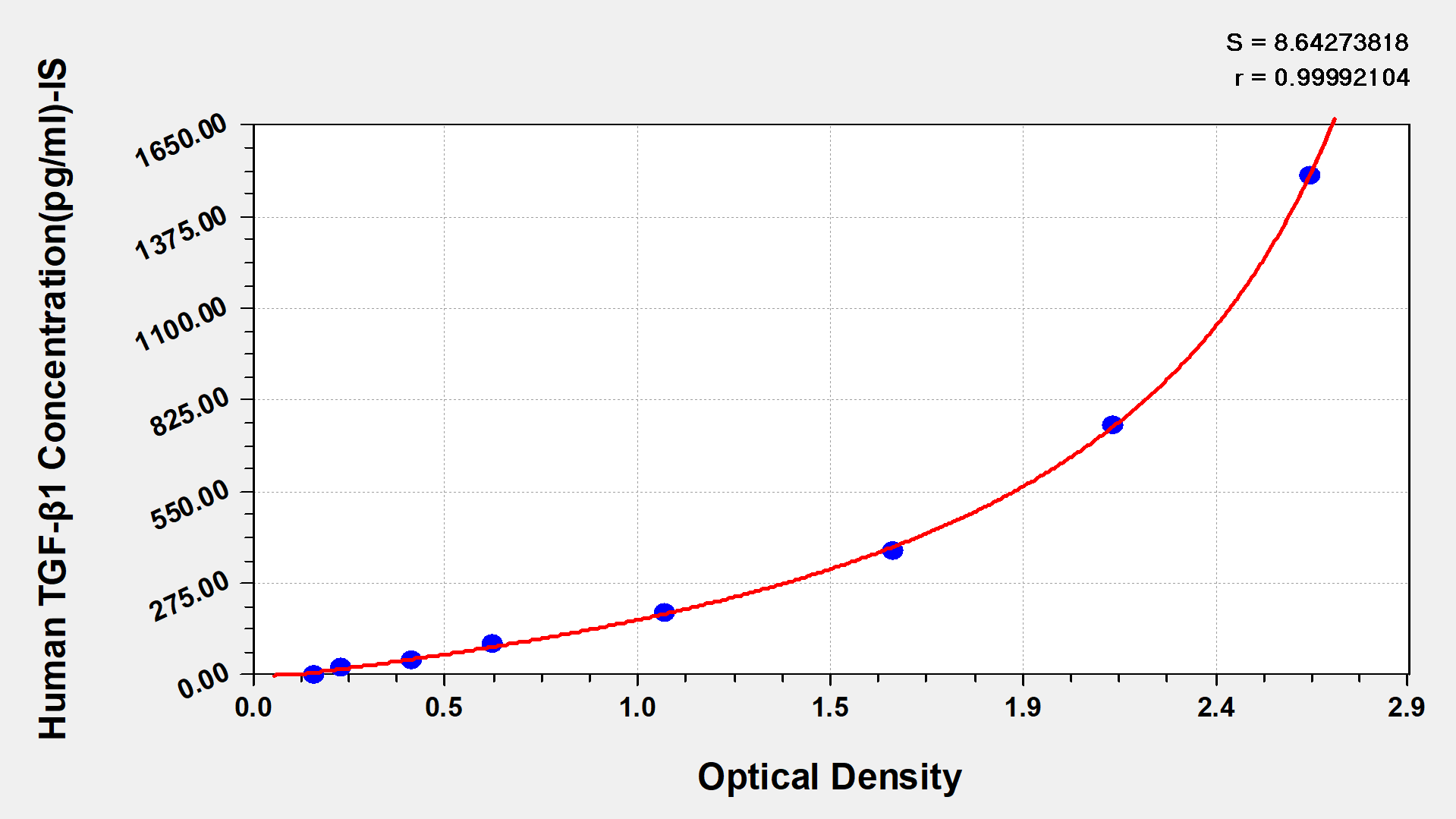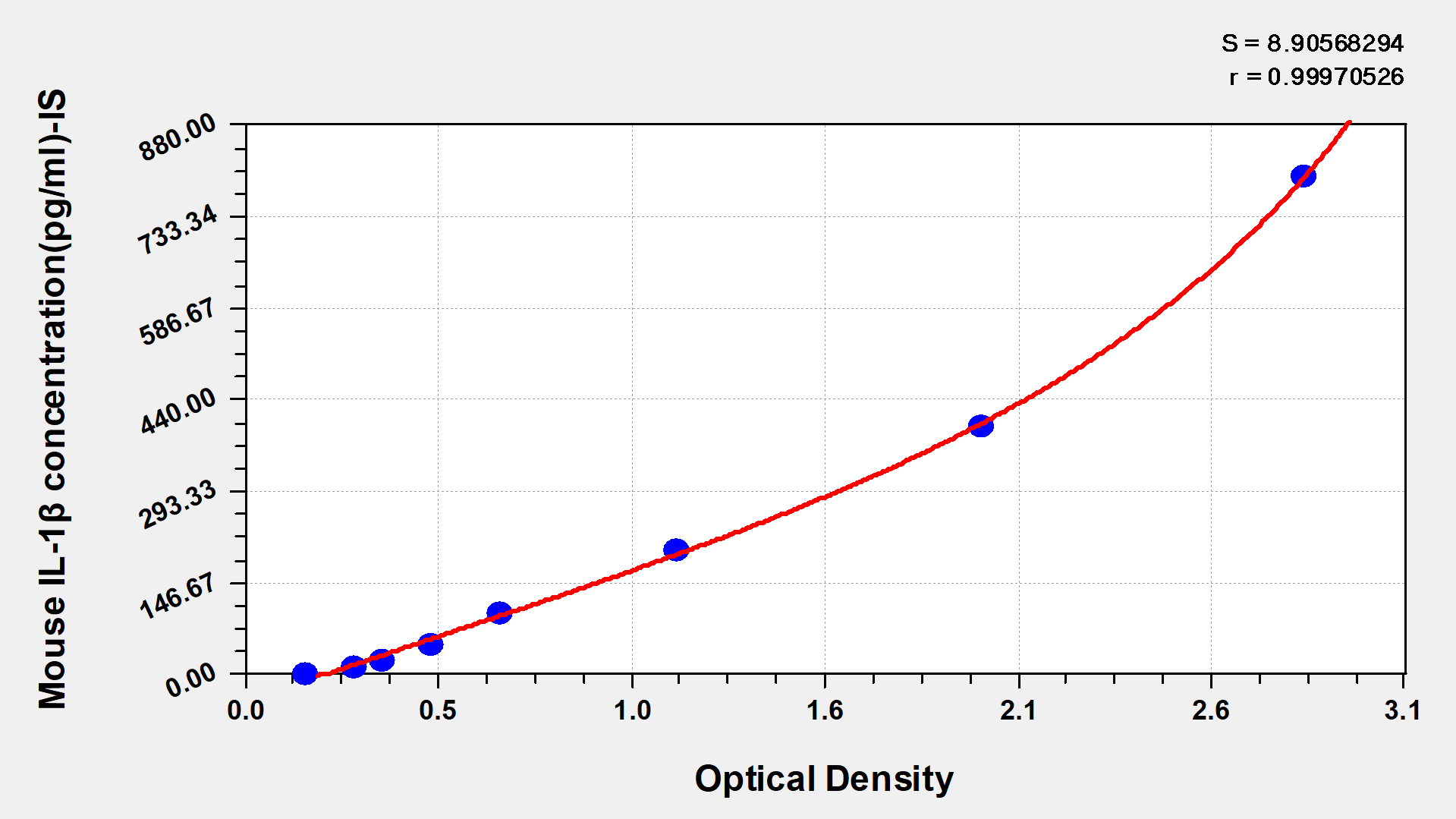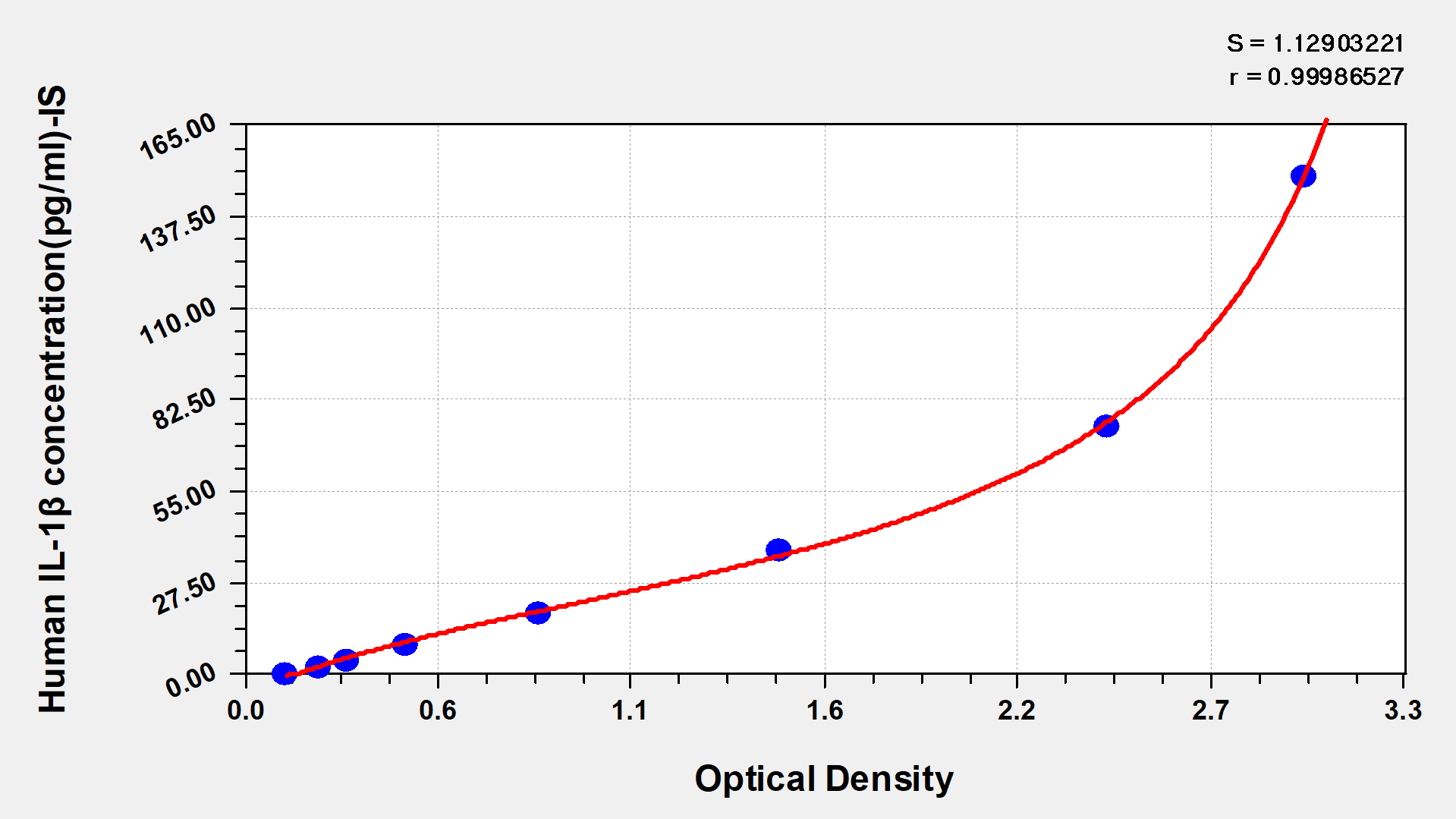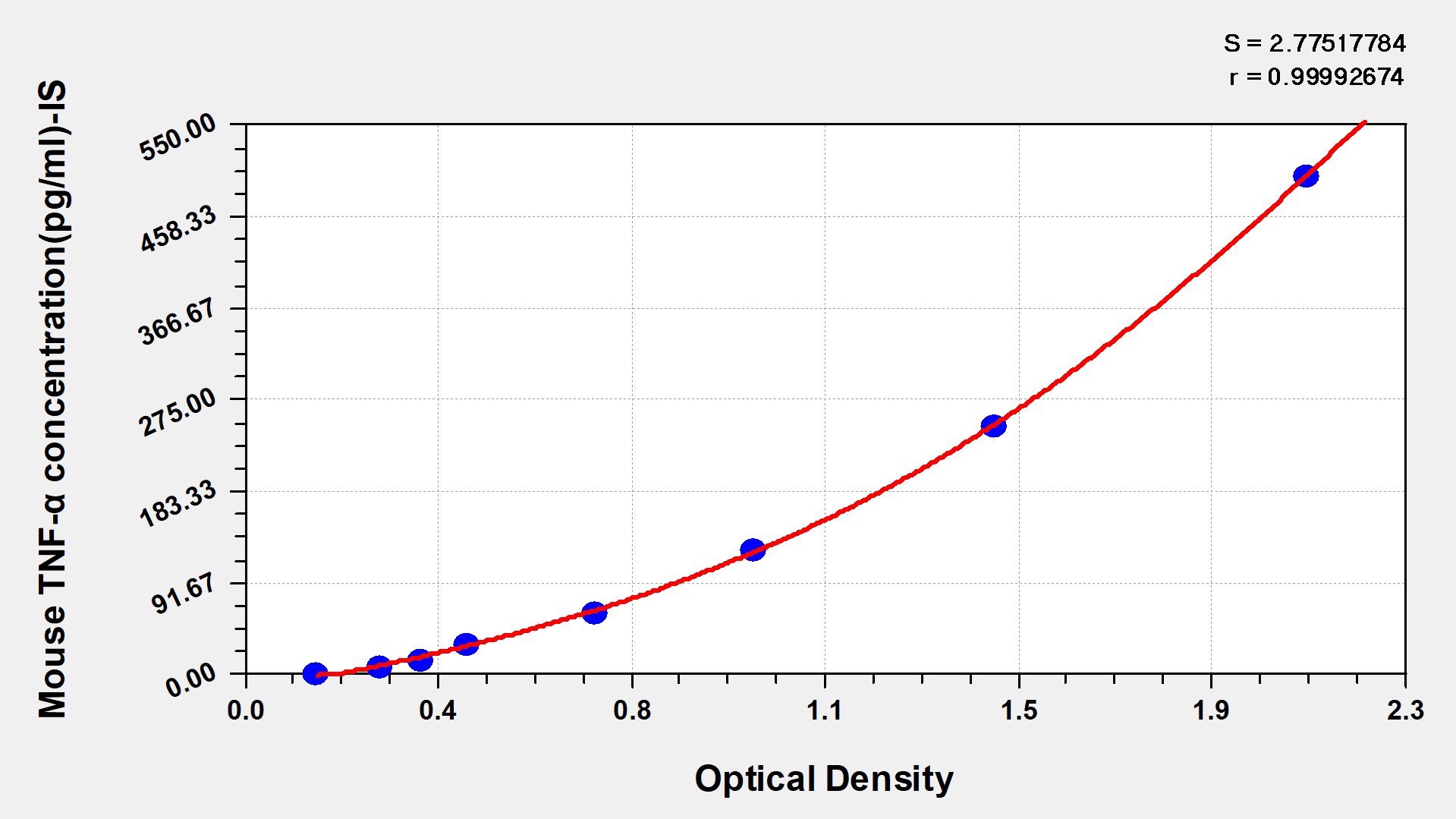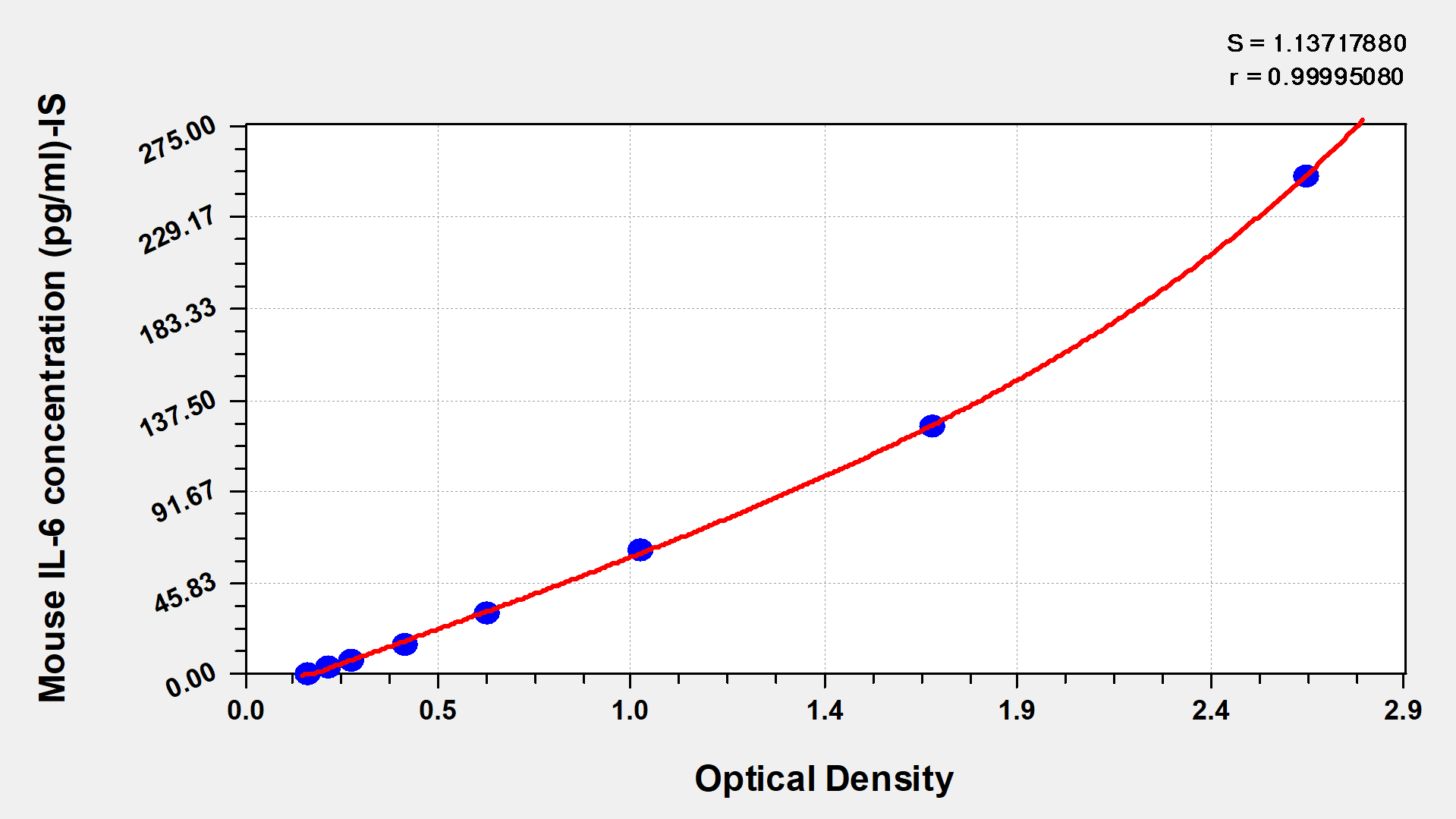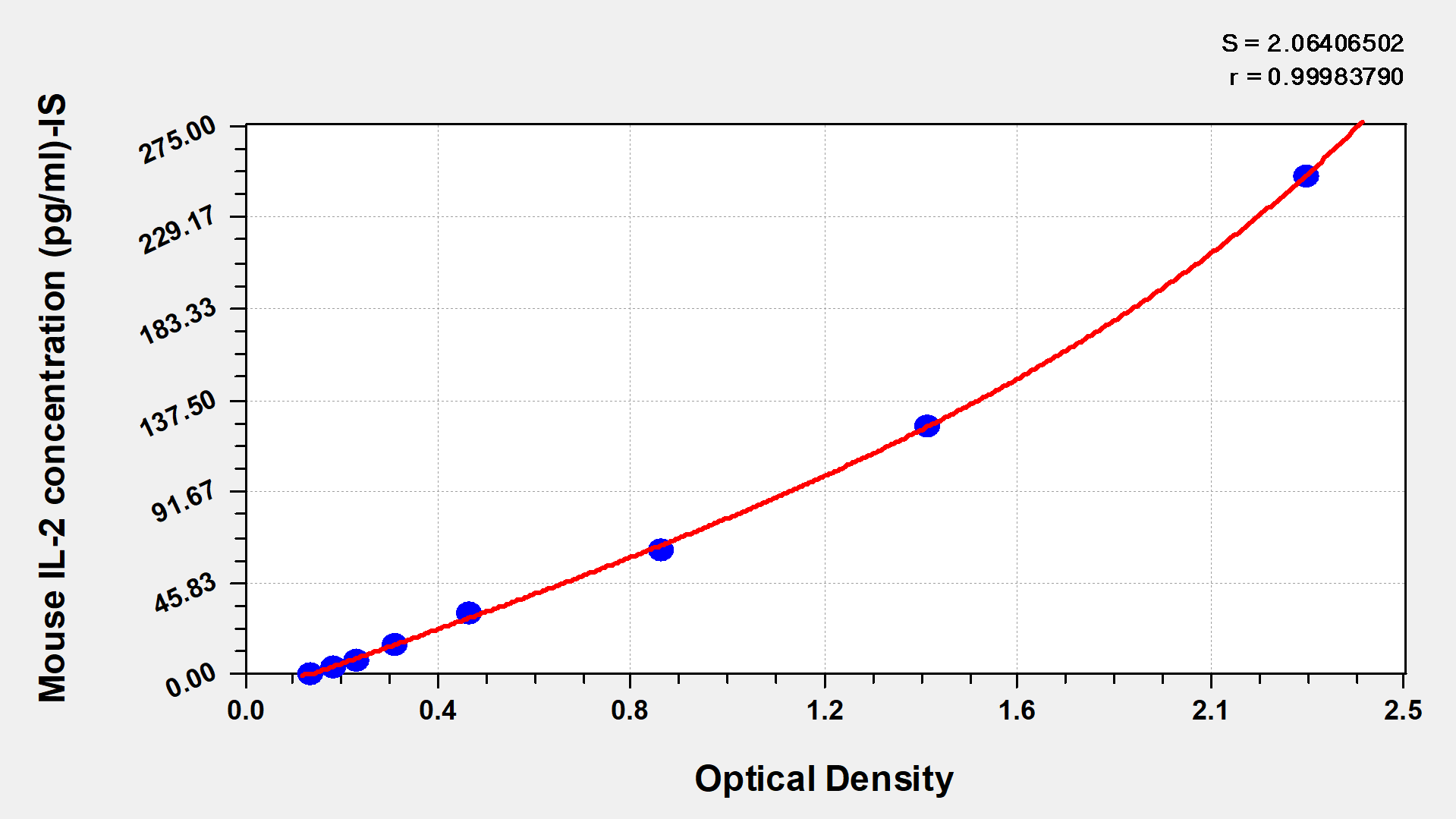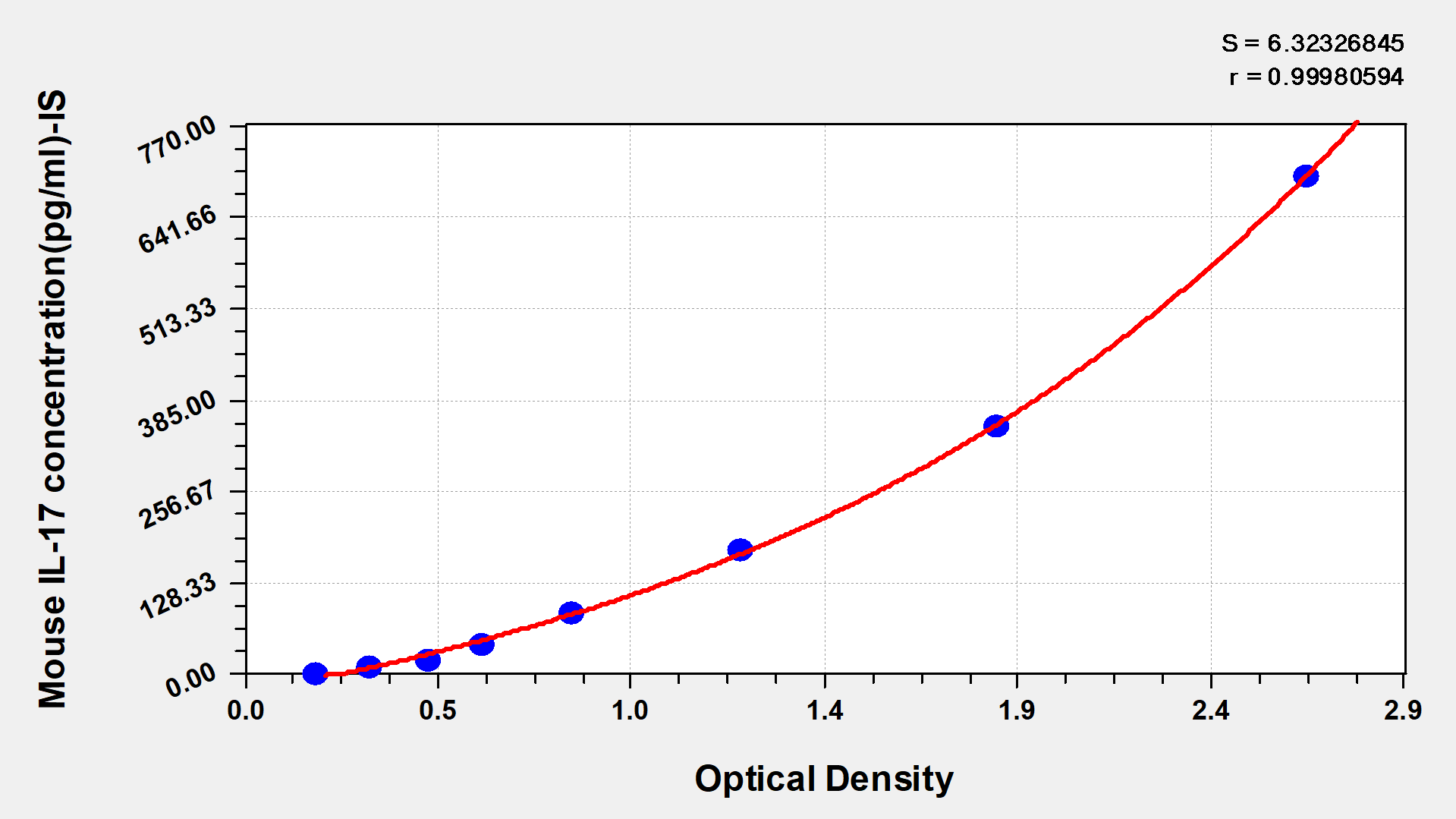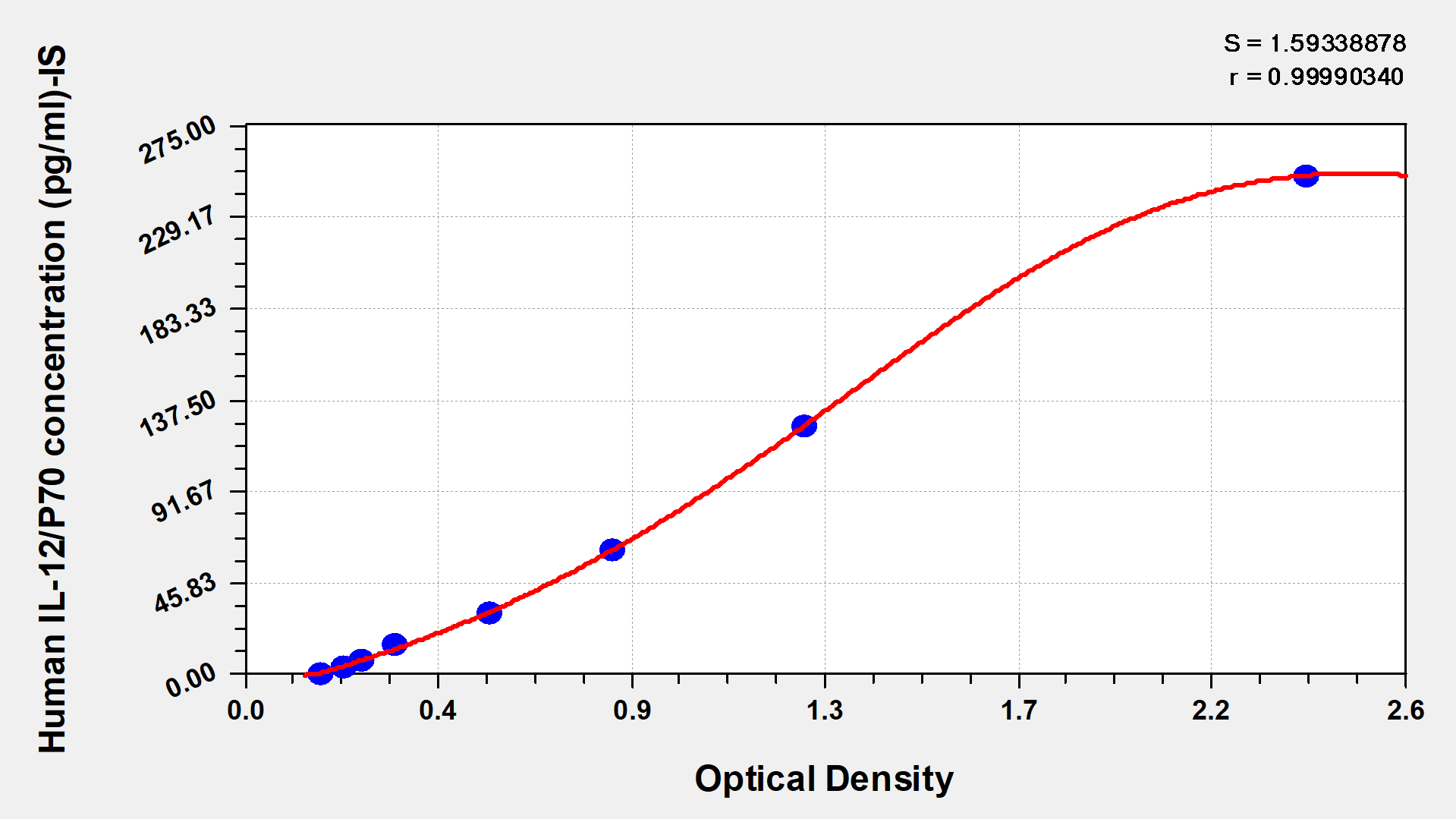Human Cytoskeleton-associated protein 4(CKAP4) ELISA kit
-
中文名稱:人細胞骨架相關(guān)蛋白4(CKAP4)酶聯(lián)免疫試劑盒
-
貨號:CSB-EL005453HU
-
規(guī)格:96T/48T
-
價格:¥3600/¥2500
-
其他:
產(chǎn)品詳情
-
產(chǎn)品描述:人細胞骨架相關(guān)蛋白4(CKAP4)酶聯(lián)免疫試劑盒(CSB-EL005453HU)為雙抗夾心法ELISA試劑盒,定量檢測血清、血漿、組織勻漿、細胞裂解物樣本中的CKAP4含量。CKAP4是一種重要靶點。它在細胞內(nèi)微管組織等方面發(fā)揮作用。相關(guān)研究圍繞其在疾病發(fā)生發(fā)展中的機制展開,如在腫瘤細胞的增殖、遷移等過程里的影響,期望通過對其機制的深入探究,為開發(fā)針對性的治療策略提供依據(jù)。試劑盒檢測范圍為23.44 pg/mL-1500 pg/mL,可滿足基礎(chǔ)科研中細胞功能研究、疾病模型構(gòu)建及藥物干預效果評價等需求。適用于體外培養(yǎng)細胞、動物模型組織或體液樣本的定量分析,為探索CKAP4在細胞增殖、凋亡、代謝調(diào)控等過程中的分子機制提供可靠工具,助力腫瘤生物學、分子病理學等領(lǐng)域的創(chuàng)新研究。本品僅用于科研,不用于臨床診斷,產(chǎn)品具體參數(shù)及操作步驟詳見產(chǎn)品說明書。
-
別名:63 kDa membrane protein ELISA Kit; CKAP 4 ELISA Kit; Ckap4 ELISA Kit; CKAP4_HUMAN ELISA Kit; Cytoskeleton associated protein 4 ELISA Kit; Cytoskeleton-associated protein 4 ELISA Kit; ERGIC 63 ELISA Kit; ERGIC63 ELISA Kit; MGC99554 ELISA Kit; p63 ELISA Kit; Transmembrane protein 63kD endoplasmic reticulum Golgi intermediate compartment ELISA Kit; Type II transmembrane protein p63 ELISA Kit
-
縮寫:
-
Uniprot No.:
-
種屬:Homo sapiens (Human)
-
樣本類型:serum, plasma, tissue homogenates, cell lysates
-
檢測范圍:23.44 pg/mL-1500 pg/mL
-
靈敏度:5.86 pg/mL
-
反應時間:1-5h
-
樣本體積:50-100ul
-
檢測波長:450 nm
-
研究領(lǐng)域:Cancer
-
測定原理:quantitative
-
測定方法:Sandwich
-
精密度:
Intra-assay Precision (Precision within an assay): CV%<8% Three samples of known concentration were tested twenty times on one plate to assess. Inter-assay Precision (Precision between assays): CV%<10% Three samples of known concentration were tested in twenty assays to assess. -
線性度:
To assess the linearity of the assay, samples were spiked with high concentrations of human CKAP4 in various matrices and diluted with the Sample Diluent to produce samples with values within the dynamic range of the assay. Sample Serum(n=4) 1:1 Average % 86 Range % 83-89 1:2 Average % 95 Range % 91-99 1:4 Average % 87 Range % 83-90 1:8 Average % 99 Range % 92-103 -
回收率:
The recovery of human CKAP4 spiked to levels throughout the range of the assay in various matrices was evaluated. Samples were diluted prior to assay as directed in the Sample Preparation section. Sample Type Average % Recovery Range Serum (n=5) 86 83-89 EDTA plasma (n=4) 100 95-105 -
標準曲線:
These standard curves are provided for demonstration only. A standard curve should be generated for each set of samples assayed. 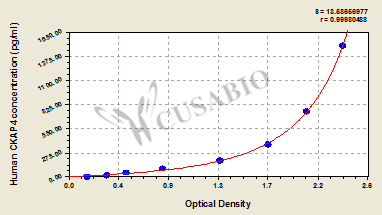
pg/ml OD1 OD2 Average Corrected 1500 2.345 2.401 2.373 2.200 750 2.013 2.112 2.063 1.890 375 1.754 1.704 1.729 1.556 187.5 1.334 1.304 1.319 1.146 93.75 0.812 0.831 0.822 0.649 46.88 0.503 0.512 0.508 0.335 23.44 0.346 0.338 0.342 0.169 0 0.172 0.174 0.173 -
數(shù)據(jù)處理:
-
貨期:3-5 working days
相關(guān)產(chǎn)品
靶點詳情
-
功能:Mediates the anchoring of the endoplasmic reticulum to microtubules.; High-affinity epithelial cell surface receptor for the FZD8-related low molecular weight sialoglycopeptide APF/antiproliferative factor. Mediates the APF antiproliferative signaling within cells.
-
基因功能參考文獻:
- Both DKK1 and CKAP4 are frequently expressed in pancreatic and lung tumours, and their simultaneous expression is negatively correlated with prognosis. PMID: 28514532
- CKAP4 has a role as a Dickkopf1 receptor and in pancreatic and lung tumor progression PMID: 27322059
- Human Prostate Basal cell hyperplasia is an expansion of p63. PMID: 28795417
- APF binds specifically to sites within the cytoskeleton-associated protein 4 (CKAP4) extracellular domain PMID: 28893174
- The still rudimentary information of how CLIMP-63 fulfills these different roles, what these are exactly and how post-translational modifications control them, will be discussed. PMID: 25849921
- Although VIMP can interact with CLIMP-63 and Syn5L, it does not interact with MT-binding ER proteins (such as Reep1) that shape the tubular smooth ER PMID: 25008318
- revealed that CKAP4 could associate with EGFR at basal status and the complex was reduced upon EGF stimulation, leading to release EGFR into cytoplasm PMID: 24838946
- Single nucleotide polymorphisms in p63 are implicated in the etiology of nonsyndromic bladder-exstrophy-epispadias complex. PMID: 23913486
- Here we report that the combination of p63, a master regulator of epidermal development and differentiation, and KLF4, a regulator of epidermal differentiation, is sufficient to convert dermal fibroblasts to a keratinocyte phenotype. PMID: 23921950
- CKAP4 was correlated with favorable clinical outcome and was an independent predictor for overall survival in hepatic cholangiocarcinoma patients. PMID: 23665508
- p63 positively regulates desmosome adhesion by directly controlling the expression of several desmosome genes, including Dsp, Dsc3 and Dsg1. PMID: 23108156
- CLIMP63 regulates the luminal diameter within the endoplasmic reticulum and may play a role in regulating the formation of endoplasmic reticulum sheets. PMID: 21111237
- The results define CLIMP-63 as a novel protein interactor and regulator of Dicer function, involved in maintaining Dicer protein levels in human cells. PMID: 23047949
- Treatment of airway epitheial cells (AEC) with SP-A, monoclonal antibodies to CKAP4/P63, or CKAP4/P63-specific small interfering RNA decreased the binding of purified alginate exopolysaccharide to AEC. PMID: 22966120
- This study identifies specific changes in skin structural biology and signalling pathways that result from mutant p63 and provides new molecular insight into the AEC syndrome phenotype PMID: 22329826
- CCN2 regulation by antiproliferative factor involves CKAP4 nuclear translocation and binding to the CCN2 promoter. PMID: 22438586
- Tumor markers, p63 and high molecular weight cytokeratin, may be utilised in the distinction between urothelial carcinoma with prostatic stromal invasion and urothelial carcinoma with colonisation of prostatic ducts and acini. PMID: 22406481
- These findings strongly support the routine use of p40 in place of p63 for the diagnosis of pulmonary squamous cell carcinoma. PMID: 22056955
- This study found a consistent expression profile and localization analysis of p63 and GM1 in primary keratinocytes and in human epidermal biopsies. PMID: 21820419
- Telomere length in Sjogren syndrome is shorter and associated with lower levels of expression of p63 and nucleostemin than in non-Sjogren syndrome. PMID: 21655359
- Synthetic as-antiproliferative factor inhibits cell proliferation in T24 bladder carcinoma cells via the CKAP4 receptor PMID: 21143984
- Data demonstrate an important role for the PI3-kinase-Akt pathway in intracellular transport of surfactant protein A receptor P63. PMID: 20870746
- p63 binds to an enhancer element in the SHFM1 locus and this element controls expression of DLX6 and DLX5 which are important for limb development. PMID: 20808887
- p63 was not found to be highly sensitive for squamous cell carcinoma PMID: 20184665
- I510T mutation of p63 was detected in both RHS and AEC syndrome patients and mutation of S541 residue can lead to either RHS (S541Y) or AEC syndrome (S541F). PMID: 20156774
- evidence to support the hypothesis that p63 is the functional tPA binding site on VSMC PMID: 12913003
- The ectrodactyly, absence of radius side part palm and split foot malformation are caused by the mutation of base pair at number 665 of the exon 5 of P63. PMID: 15476176
- CLIMP-63-mediated stable anchoring of the endoplasmic reticulum (ER) to microtubules is required to maintain the spatial distribution of the ER during interphase. PMID: 15703217
- is not responsible for autosomal-dominant amelogenesis imperfecta PMID: 16546853
- cytoskeleton-associated protein 4/p63 (CKAP4/p63), a type II transmembrane receptor, binds with high affinity to APF PMID: 17030514
- Olomoucine, a CDK inhibitor, up-regulates CKAP4, a cytoskeleton-linking membrane protein. PMID: 17975794
- Identification of CKAP4/p63 as a substrate of DHHC2, a putative tumor suppressor. PMID: 18296695
- CK MNF116 and p63 were useful in identifying squamous cell carcinomas with single cell infiltration. PMID: 18333895
- Results substantiate the role of P63 as a lung surfactant protein-A receptor protein localized on the surface of lung type II cells. PMID: 18708633
- DHHC2-mediated palmitoylation of CKAP4 has a role in opposing cancer-related cellular behaviors. PMID: 19144824
- p73 and p63, but not p53, are modulated during the cell cycle PMID: 19861536
- The p62/p63 protein was first identified because it is palmitoylated during mitosis. PMID: 1730740
- Purification and cloning of p62/p63. PMID: 8566419
顯示更多
收起更多
-
亞細胞定位:Endoplasmic reticulum membrane; Single-pass type II membrane protein. Cell membrane; Single-pass type II membrane protein. Cytoplasm, cytoskeleton. Cytoplasm, perinuclear region. Note=Translocates to the perinuclear region upon APF-stimulation.
-
數(shù)據(jù)庫鏈接:
Most popular with customers
-
Human Transforming Growth factor β1,TGF-β1 ELISA kit
Detect Range: 23.5 pg/ml-1500 pg/ml
Sensitivity: 5.8 pg/ml
-
-
-
Mouse Tumor necrosis factor α,TNF-α ELISA Kit
Detect Range: 7.8 pg/ml-500 pg/ml
Sensitivity: 1.95 pg/ml
-
-
-
-



